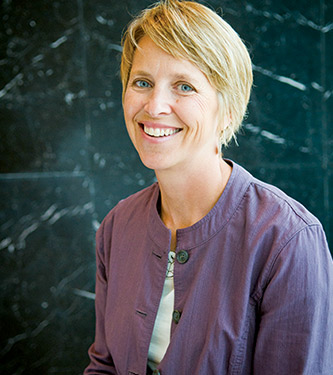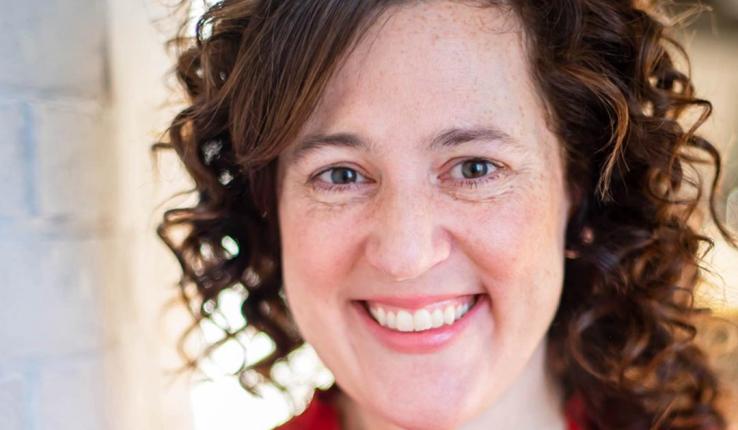Shaping Geometric Knowledge

A Lehigh team is finalizing an educational app that allows children to build a virtual structure on a tablet as they might with real blocks.
Can virtual building blocks help young children develop geometric and spatial skills? A Mountaintop team, led by Robin Hojnoski, associate professor of School Psychology, and Michael Spear, assistant professor of Computer Science and Engineering, is experimenting to see if it's possible.
The team spent the summer furthering the development of a block-building tablet application begun in 2015. This year, the team aimed to finalize the educational app it hopes will provide meaningful learning experiences for young children as well as a deeper understanding of child development for researchers.
Tentatively named BuildSpace, the app allows children to build a virtual structure on a tablet as they might with real blocks. Users can choose from a variety of three-dimensional shapes to move, position and stack. Users can also view the shapes from different perspectives, just as they might move around when building with real blocks.
Team members spanned a variety of disciplines and included Brittany Kuder, doctoral student in School Psychology and Hojnoski's graduate research assistant; Emily Gallagher and Nina Ventresco, both doctoral students in School Psychology; Basilio Garcia '17, a Computer Science and Business major; Lucy Swett '19, a Computer Science major; Melissa Gustafson '19, an English and Psychology major, and Maryam Turkey, a rising senior studying Industrial and Product Design at the Pratt Institute in New York.
Kuder and her teammates visited child care centers and assigned children between the ages of 4 and 7 to do one of two conditions: building with the app or building with real blocks. Kuder first administered the block design subtest of the Wechsler Preschool and Primary Scale of Intelligence (WPPSI) to control for spatial ability. Team members also administered pre- and post-assessments on mental transformation, mental folding and shape identification to compare growth between the two conditions. The team took measurements, such as the amount of time children spent building, whether or not they reset the app or knocked down their blocks, what they built and what they described.
Throughout the summer, the team worked to refine the app and determine how to collect the app's back-end data, which it hopes can provide insight into how children use the app and how that relates to measures of child development and demographic data. The team explored the creation of a guided-building platform as well as a contextualized-building platform that would include building activities within an interactive storybook.
The nature of the Mountaintop program allowed the team to explore possibilities without explicit requirements or fear of failure.
"When we had our first meeting and we knew that there were still some things that are really just hard to do with the app, we kind of said, 'All right, this isn't about an experiment, this is about exploring what we could do and seeing what comes out of it,' " said Hojnoski. "And that is somewhat frightening for people who are used to controlling things, but was also, I think, a little bit freeing."
Posted on:





